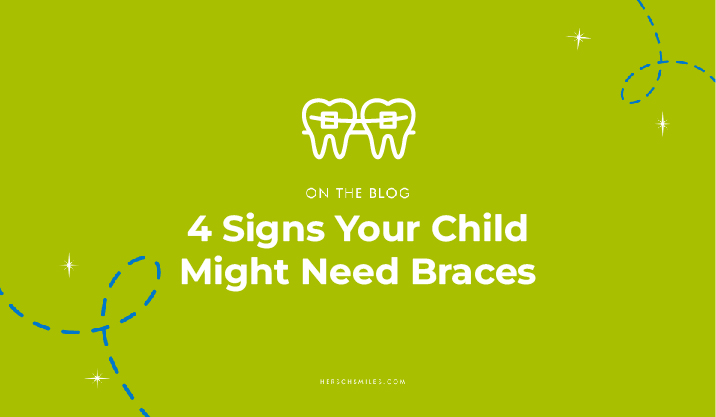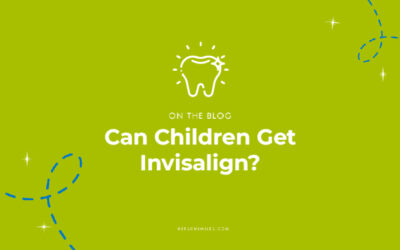Braces don’t just make cosmetic changes to a person’s smile. They are meant to reposition and train the teeth to stay in an optimal position. This includes properly aligning the jaw, so eating and sleeping are easier. If your child has issues with their teeth or bite that aren’t corrected early in life, they may suffer long-term consequences such as cavities.
It can be difficult to tell which issues will resolve themselves and which will need a dentist’s intervention. It can’t hurt to ask your pediatric dentist about whether braces are the right option for your child, but in the meantime, you can learn about a few common signs that they might be necessary.
Number 1: Your Child Has an Overbite or Underbite
Even slight problems with the alignment of the top and bottom teeth can cause pain, tooth injuries, and sleep problems. If they don’t crop up now, they will almost certainly appear later in life.
An underbite is when a child’s bottom teeth extend further than their top teeth; by contrast, an overbite is when the top extends further than the bottom. The more severe the bite problem, the more likely your child will suffer these common effects:
- Disorders of the TMJ. The temporomandibular joint (TMJ) is the sliding hinge of your jaw that allows it to open and close. It assists with swallowing, yawning, talking, and eating. Clenching and grinding teeth cause strain on this joint that can result in pain, locking jaw, clicking, and grinding.
- Tooth decay. The way your teeth and jaw are oriented affects bacterial growth in your mouth, meaning that an underbite could lead to an increased risk for gum disease and cavities.
- Sleep apnea. Your mouth needs to relax during sleep, but if your jaw obstructs your airways from getting enough Oxygen, you may develop a sleep disorder. Losing sleep can result in widespread effects on your mood, productivity, and relationships.
- Speech problems. Of course, the way the jaw moves and rests will affect your child’s speech development. One study published in the National Institute of Health (NIH) found that certain bites were more likely to result in speech disorders in school-aged children.
Number 2: Your Child Breathes Through Their Mouth
This factor is more of a prediction than a symptom. Believe it or not, mouth breathing can wreak havoc on your child’s sinuses, facial structure, and teeth. More often than not, if your child chooses to breathe through their mouth, they feel uncomfortable breathing through their nose because of allergies, a deviated septum, or another underlying health condition.
If your child breathes through their mouth, talk with your pediatric dentist to determine the underlying cause. If it can be treated, you may be able to avoid the dental complications and inevitable braces.
Number 3: Your Child Sucks Their Thumb
For children under the age of about 5 years old, thumb-sucking isn’t an immediate danger to their dental health. However, if your child is still sucking their thumb after five, it may be time to talk about interventions.
When a child’s permanent teeth come in, and the child is sucking their thumb, it can result in the teeth and bite settling into a problematic formation. Bite issues resulting from thumb-sucking often cause eating difficulties and speech problems.
Number 4: Your Child’s Teeth Having Spacing Issues
Whether the teeth are overcrowded or spaced too far apart, this is a fairly visible sign that braces may be needed down the line. For many children, spaces in between teeth will fill in as their adult teeth come in. If their teeth start off overcrowded, then this isn’t likely to resolve on its own. Either way, consult with your doctor about the best age for braces.
Visit Hersch for Child-Centric Patient Care in California
At Hersch, our team of pediatric dentists and orthodontists work together to create a healthy dental foundation for your child. We want to provide specialized care that sets them on the right path toward a healthy bite and a happy smile.
To make an appointment, you can call 949-749-4861 or fill out our contact form.






